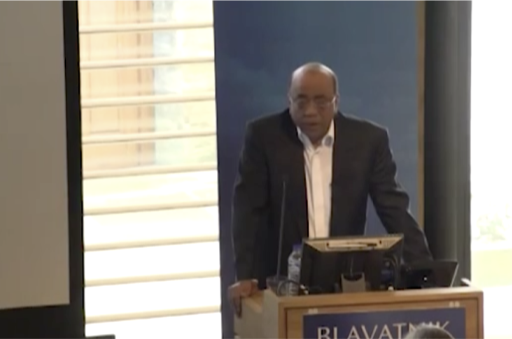3.2 Governance
All societies create systems for managing social relationships, for allocating and exercising authority, and for distributing resources. Within some such systems are explicit, formal rules such as those codified in laws and regulations. Just as significant in social contexts are the informal, unwritten rules which make up norms, what is accepted and not accepted within any set of social relationships. These contribute to managing conflicts in social interactions. For instance, road safety is ensured by implementing a non-negotiable law regarding driving on the left or right-hand side of the road. Breaking the rule is met with punitive measures such as a jail sentence.
Take inter-generational relations as a further example. While it does happen that children often end up caring for and providing for their parents, this is usually an exceptional circumstance and there will be institutional responses, whether formal or informal, to support such juvenile carers. However, the norm of managing these generational relationships and allocating authority is that parental generations look after their children. When such rules are broken, and conflict develops, other rules come into effect, leading in some cases to the legal abrogation of parental authority and placing of children into foster care on the behalf of a governing authority.
Activity 3: The importance of good governance
Watch Video 1, or read the transcript, in which Dr Mo Ibrahim, a British-Sudanese businessman and founder of the Mo Ibrahim Foundation, speaks about governance in Africa. How does he see the relationship between governance, development and development aid?

Transcript: Video 1: Mo Ibrahim: Governance matters for Africa – and for everybody else!
Discussion
Mo Ibrahim emphasises the importance of good governance in Africa. He speaks of the immense resources of Africa and contrasts this with the poverty of people there. He places the blame on poor governance. Development aid is not the answer. Governments have to take responsibility for the way in which the economy, social life, legal structures and institutions are managed and developed. What is not mentioned is the pathway by which the idea of good governance gained such prominence in Africa. This pathway is one whereby granting of aid and investment by EU institutions and the World Bank came with requirements for improved governance.
Video 1 advocates the setting up of good governance systems as the way forward for Africa. But who is to say what good governance is? It is highly contested. Laws and regulations, and social norms protect, but can also perpetuate social injustice and inequality. For instance, there are at least 71 jurisdictions across the globe that criminalise consensual, same-sex sexual activity for lesbian, gay, bisexual and transgender (LGBT) people (Human Dignity Trust 2022).
When thinking in terms of governance in relation to development, questions you can ask include – who decides what to put in place, when and how? Such questions demand a recognition that governments, like all social institutions, are imperfect and do not always work in the best interests of all those governed. Governance is a much broader concept than government and necessitates the involvement of a wide spectrum of actors, social groups, civil society organisations, private companies and regional and international bodies. In turn, the involvement of such a diverse array of actors will inevitably engender conflict. The challenge of governance and its relationship to good development is an enduring and taxing one in global development and leads to a consideration of justice.
